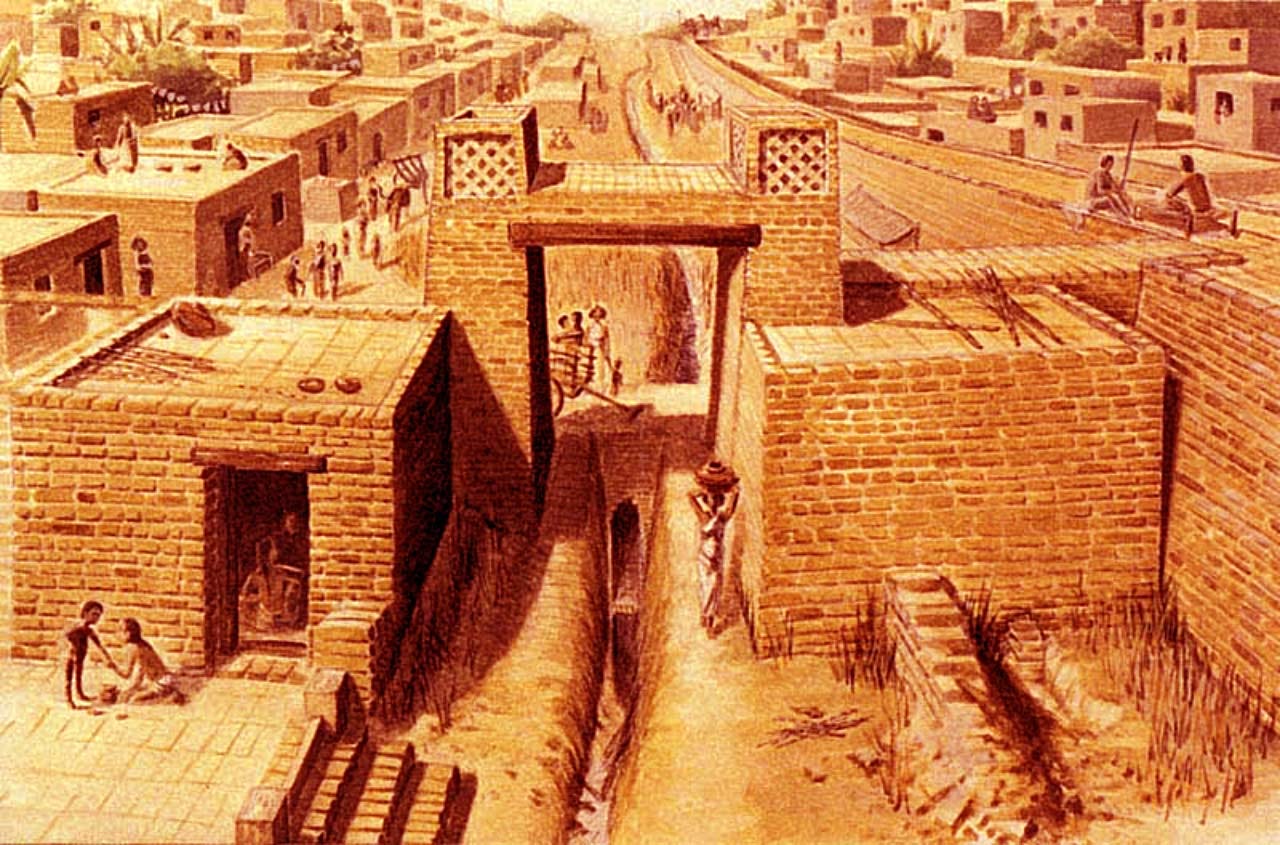Advancing Sanitation and Drainage Systems: Lessons from the Indus Valley Civilization for Modern Times
“Explore the engineering marvels of the Indus Valley Civilization’s sanitation system and uncover how its timeless principles guide modern efforts towards sustainable and efficient sanitation practices.”
The Indus Valley Civilization
Introduction
One of the world’s oldest urban civilizations flourished around 2500 BCE in what is now modern-day India and Pakistan. Among its remarkable achievements, the Indus Valley Civilization boasted an advanced drainage and sanitation system that far surpassed its contemporaries. Even in today’s world, where technology has revolutionized every aspect of life, there are lessons to be learned from this ancient civilization’s ingenious approach to managing sewage and maintaining cleanliness. This article explores the drainage and sanitation system of the Indus Valley Civilization and how its principles can guide us toward more sustainable and efficient sanitation practices in the present day.

The Indus Valley Civilization’s Sanitation System
- Advanced Drainage Technology: The cities of the Indus Valley Civilization, including Mohenjo-Daro and Harappa, featured an intricate network of brick-lined drains, sewers, and waste disposal systems. These drains were engineered to handle both rainwater runoff and human waste efficiently. The streets of these ancient cities were designed with a gentle slope, allowing wastewater to flow through the network of drains and ultimately into nearby rivers.
- Flush Toilets: One of the most fascinating aspects of the Indus Valley Civilization’s sanitation system is the presence of flush toilets. Archaeological excavations have revealed the existence of indoor toilets connected to the city’s sewage system. These toilets featured a simple but effective mechanism that allowed residents to flush waste into the drainage system, demonstrating an impressive understanding of plumbing principles.
- Waste Management: The civilization’s waste management practices were well-organized. Citizens disposed of household waste, such as broken pottery and organic matter, in designated areas, ensuring cleanliness in residential areas. Waste collection points were strategically placed throughout the cities, making it easier for the waste to be disposed of safely.
Research Paper: Hydrology and water resources management in ancient India
Lessons for Modern Times
- Sustainability: The Indus Valley Civilization’s drainage system was designed with sustainability in mind. Today, there is a growing emphasis on sustainable sanitation practices. We can learn from their approach by developing eco-friendly drainage systems that minimize the environmental impact. This includes incorporating green infrastructure, such as permeable pavements and rain gardens, to manage stormwater and reduce pollution.
- Integrated Approach: The Indus Valley Civilization’s sanitation system was comprehensive, encompassing both wastewater management and solid waste disposal. In modern times, a similar integrated approach can lead to more effective sanitation systems. Municipalities can invest in waste segregation, recycling programs, and modern sewage treatment plants to ensure a holistic approach to sanitation.
- Hygiene Education: Education was a key component of the Indus Valley Civilization’s success in maintaining cleanliness. In contemporary society, promoting hygiene education is vital. Public awareness campaigns and school curricula can help raise awareness about proper sanitation practices, which can significantly reduce the spread of diseases and promote a clean environment.
- Infrastructure Investment: The Indus Valley Civilization invested heavily in infrastructure to create efficient drainage and sanitation systems. Similarly, modern societies need to allocate resources for the construction and maintenance of sanitation infrastructure. Neglecting this aspect can lead to health hazards and environmental degradation.
- Innovation and Technology: While the Indus Valley Civilization’s sanitation system was advanced for its time, modern technology offers even greater opportunities for innovation. Today, we have access to advanced materials, remote sensing, and data analytics that can improve the design and management of sanitation systems. Investing in technology-driven solutions can enhance efficiency and reduce costs.
- Climate Resilience: Climate change is affecting rainfall patterns and water availability in many regions. The Indus Valley Civilization’s ability to manage both rainfall runoff and sewage can serve as a model for climate-resilient sanitation systems. Modern cities should consider climate change adaptation strategies when designing drainage and sewage systems.
> Learn More About Ancient India
Conclusion
The Indus Valley Civilization’s drainage and sanitation system was a testament to their engineering prowess and commitment to public health. Their innovative practices, including flush toilets and an integrated approach to waste management, continue to inspire modern sanitation solutions. As we face increasing challenges related to population growth, urbanization, and environmental degradation, it is essential to draw lessons from ancient civilizations like the Indus Valley. By embracing sustainable, integrated, and technologically advanced sanitation systems, we can create cleaner, healthier, and more resilient cities for future generations.
“Embark on a Journey Through Time: Exploring the Mystical Ruins of Ancient Indian Temples“
Discover more from Boundless Blogger
Subscribe to get the latest posts sent to your email.
